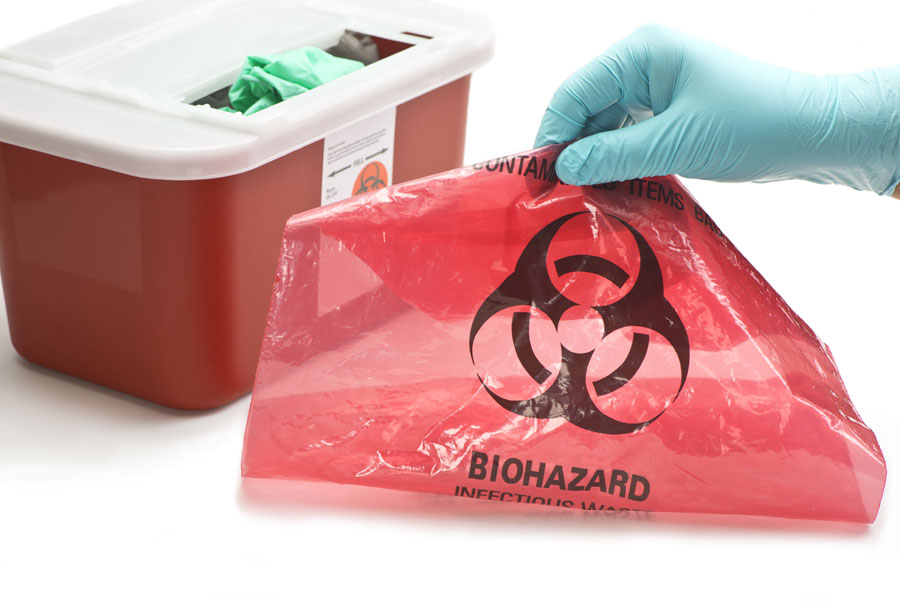The medical waste generated by contacts of Covid-19 positive persons quarantined at their homes can spread the infection unless collected and treated properly, warn public health experts.
Though the Bidhannagar Municipal Corporation area has about 500 such home isolation cases, till Wednesday evening such waste collection had not been initiated in the township as in other urban local bodies in the state despite the Central Pollution Control Board’s (CPCB) specific directive in this regard. “We are not aware of any such directive; but as you are saying we will soon look into the directive,” mayor Krishna Chakraborty told The Telegraph. Subsequently Pranay Roy, mayor-in-council in charge of health, confirmed that they would take appropriate action soon.
On Wednesday evening, the state pollution control board’s member secretary Rajesh Kumar issued a letter to the state urban development secretary and the state rural development secretary sharing the CPCB directive, requesting local authorities to act.
CPCB had earlier issued two guidelines in March to municipalities with instructions. “In case of home-care for suspected patients, biomedical waste should be collected separately in yellow bags and the same shall be handed over to authorised waste collectors engaged by local bodies,” read the first guideline which further stated that “ULB (urban local body) should engage CBWTF (common biomedical waste treatment facility) to pick up such waste either directly from quarantined houses or from identified collection points”.
The revised guideline issued by CPCB member secretary Prashant Gargava says municipalities should “create a separate team of workers who shall be engaged in door step waste collection” after imparting special training and providing dedicated vehicles.
Experts observe that even if a small fraction of those in home quarantine test positive, inappropriate waste management can prove disastrous. “There can be biomedical waste from used masks, tissue paper, used cotton, medicine left overs or any other materials disposed by the quarantined persons. Unless this is collected separately and incinerated, there remains high risk of the infection spreading,” said Utpal Chattapadhyay, director of All India Institute of Hygiene & Public Health (AIIH&PH) to The Telegraph.
Naba Dutta, secretary of green platform Sabuj Mancha, said that proper training should be imparted to both the quarantined families and the waste collectors.












